Buy Wine by the Case
87 products
- Red Wine
- Grenache, Mourvèdre / Monastrell, Samso / Carignan, Syrah
- Sustainable, Vegan-Friendly
- Dry
- Medium Bodied
- 750ml
- 14.5% alc./vol
About the Winery
Domaine Andre Aubert
At the very heart of the Rhône Valley, at the northerly tip of the Southern Rhône, lie the vineyards of Grignan-Les-Adhémar. The chances are you haven’t heard the name before, few people have, but the wines are worth seeking out. It’s not a new wine region – vines have been planted here since around 500BC but it is a new name (formerly known as Côteaux-du-Tricastin). Domaine André Aubert, has been formed over decades and today comprises of more than 280 hectares spread from north to south of the prestigious Southern Rhone Valley on the appellations Côtes du Rhône, Côtes du Rhône villages, Visan, and Grignan-les-Adhémar.
Press Reviews
Wine Align
90 points - David Lawrason
This is new appellation (formerly Coteaux de Triscatin) is the northernmost in the southern Rhone. It uses the typical southern Rhone varieties, but none can be more than 80% of the blend. This is a quite elegant, well structured, mid-weight red with some stony minerality, lifted pepper and savoury notes. Not as opulently fruity and rich as many peers, yet very tidy and balanced. The length is very good to excellent. Tasted March 2022
- White Wine
- Sauvignon Blanc, Sémillon
- Vegan-Friendly
- Dry
- Light Bodied
- 750ml
- 12.50% alc./vol
About the Winery
Château Haut-Grelot
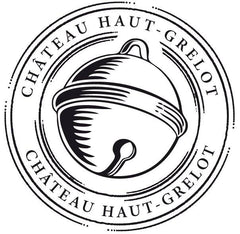
Château Haut Grelot is located in Saint Ciers Sur Gironde, approximately 50 kms north of Bordeaux, on the right bank of the Gironde Estuary. It was established by the Bonneau family in 1922 and now run but the 4th Generation. Today Château Haut-Grelot comprises 58 hectares of vineyards and is run by Céline and Julien, who was recently awarded the title 'Best Young Talent' in Bordeaux.
The vineyards are made up of sandy-gravel on the hillsides bordering the Gironde Estuary and sand-clay-silt on the hillsides further inland. Blaye Côtes de Bordeaux benefits from an ideal microclimate where there is a high level of sunshine and enough rain to guarantee the perfect environment for grape production. As a result the reds are fruity and concentrated and the whites are fresh, vibrant and delicate.
- Rosé Wine
- Cinsault, Grenache, Syrah
- Organic, Vegan-Friendly
- Dry
- Medium Bodied
- 750ml
- 13.5% alc./vol
About the Winery
Mas Carlot

Mas Carlot is situated in the south of the Rhône Valley, extending across 76 hectares of pebbly land southeast of Nîmes. Originally a 17th century farm, this beautiful estate was resurrected in the 1960's by the Blanc family—it is currently run Cyril Mares of the neighbouring and equally reputable property, Mas Bressades.
The appellation of Costières de Nîmes used to be considered part of eastern Languedoc but the climate, soil, topography and wine are far closer to those just over the river in the Southern Côtes du Rhône. It is now a region very much on the up and is widely recognized as a great source of excellent value wine.
- Sparkling Wine
- Chardonnay
- Sustainable, Vegan-Friendly
- Dry
- Medium Bodied
- 750ml
- 12.00% alc./vol
About the Winery
Domaine Baud Père et Fils

The history of Domaine Baud dates back to 1742, and it wasn't until 1950 when René Baud, the 7th generation, rebuilt the vineyard which had suffered from the phylloxera crisis and two World Wars.
Starting with only 4 hectares, the vineyard progressively expanded to 20 hectares with the help of successive generations. Now, managed by siblings Clémentine and Bastien, the 9th generation, the estate continues to flourish and grow, with a strong commitment to sustainable viticulture and preserving the traditions and style that makes the wines of the Jura so unique and incredible.
The estate achieved the Terra Vitis certification in 2014 for its eco-friendly work and environmental preservation.
Press Reviews
Wine Align
92 points - David Lawrason
This is a very tasty, rich, golden hued, well aged chardonnay-based sparkler with an involved nose of cashew, baked apple, nougat and honey. It is almost creamy in texture with fine mousse and very good acidity providing counterpoint. There is pleasant nutty bitterness on the finish; length is excellent.
92 points - John Szabo, MS
A traditional method, pure chardonnay bubbly from the Jura of considerable maturity and toasty-oxidative character, also notable dosage - the style has changed little since last reviewed almost 8 years ago (though this is a new, non-vintage bottling, of course). It's maple syrup and curry-infused with dried citrus and apples, indeed with quite impressive complexity in a mature style. Length and depth are very good. Quality wine, attractively priced in the category. Tasted January 2026.
91 points - Michael Godel
Increased autolysis and also richness from the present bottle of Baud’s Blanc de Blanc. Some maturity here, an evolution of bread and gingered elements that make the wine feel like it’s reached the peak. Complex and flavourful in any case with creamy textures and mouthfeel in between. Last tasted January 2026.
91 points - Sara d'Amato
From an old estate now in the hands of ninth-generation family upstarts, this traditional-method chardonnay Blanc de Blanc comes from the remote, rocky, high-altitude Jura, wedged between Burgundy and Switzerland. Generous yet clean, it leans pleasantly conventional in the best sense. Autolytic notes mingle with florals, tender fruit, and subtle toasty layers. A measured dosage adds welcome weight to an otherwise light-footed palate. Lemon zest, white grapefruit, and sweet cream lead into a nicely poised finish of memorable length. Tasted January 2026.
91 points - Megha Jandhyala, S.J.D., DipWSET.
This is a winsome chardonnay-based crémant, with a subtly toasty flavour profile, led by flavours of green orchard fruit and juicy citrus fruit. It has begun to evolve, showing signs of maturity in the form of notes of toasted nuts and fruit flavours transitioning towards the dried end of the spectrum. The palate has lively acidity and subtle sweetness, with a finish that is slightly bitter adding to the overall sense of freshness. This balanced and classic sparkling is ready to go. Tasted January 2026.
Treve Ring
91 points
This family estate dates back to 1742, but it wasn't until 1950 when René Baud, 7th generation, rebuilt the vineyards, expanding from 4 hectares into 20 hectares over the years. Today the estate is managed by siblings Clémentine and Bastien, 9th generation. This sustainably farmed chardonnay is rooted in the Jura's marl and limestone soils and was fermented in stainless before a year on lees before disgorgement and release. Green apple, white florals, oyster shells, meadow herbs, meringue run the bright, sleek palate, with a bed of creamy lees. There's a lovely streaming anise note that leads to a lengthy finish. Drinking beautifully now, but will hold over the next couple years easy.
- Red Wine
- Cinsault, Syrah
- Sustainable, Vegan-Friendly
- Dry
- Light Bodied
- 750ml
- 12.5% alc./vol
About the Winery
Pearce Family Wines

In the early 2000's Nicholas Pearce was exposed to the garagiste movement in Bordeaux and was particularly inspired by négociants like Jean Luc Thunevin (Saint Emilion), James Sichel (Margaux) and Nicolas Potel (Beaune) from Burgundy.
After returning home to Ontario and starting his own wine company, he has had a hand in making 10+ wines in two hemispheres, 3 countries and 5 different appellations since the 2013 vintage.
Pearce Predhomme

Pearce Predhomme is a collaboration of like-minded individuals from around the globe. Founded with a mission to build and import wines from our favourite appellations while offering an unequaled value/quality ratio for the sommeliers & wine buyers in Ontario. This is a project between Toronto Sommelier and entrepreneur Will Predhomme and Ontario wine importer Nicholas Pearce. They have partnered with Radford Dale in South Africa and NorthWest Wine Co. in Oregon to create these special cuvées.
Press Reviews
Platter Wine Guide 2026
4.5 Stars (90/100)
These are collaborations with Canadian sommeliers. Supple & juicy, 2023 67% wholebunch carbonic maceration cinsault, shows variety’s fragrance & charm; conventional ferment syrah, supplies heft. Tannins rounded 9 months in older oak.
WineAlign
90 points - Michael Godel
Über clean C-S joint this time around from the Pearce-Predhomme duo by way of Radford Dale in Stellenbosch and the winemaking acumen of Jacques de Klerk. No lack for aromatic volume and syrah adds palate density to otherwise light and transparent Western Cape cinsault. Good showing from 2022, missing some of the natural and volatile swarthiness of previous vintages so look at this as something gained over something lost. Those who wish for crisp, crunchy and as mentioned, very clean will get on board this time. Drink 2024-2027. Tasted April 2024.
- White Wine
- Garganega
- Organic, Vegan-Friendly, Volcanic
- Light Bodied
- 750ml
- 12.5% alc./vol
About the Winery
Azienda Agricola Tessari

The Tessari family have Soave in their blood. For three generations they have been extracting delectable wine from the well cared for vines of their Monteforte d’Alpone vineyards. With only a little over a hectare of Garganega grapes in the prestigious volcanic solis of Soave Classico, Antonio Tessari hand dug his cellar back in 1933 and started the legacy that continues today with his grandchildren: Germano, Antonio and Cornelia.
From vineyard to bottle, these three siblings oversee it all; with unwavering respect for tradition, quality and passion for the art of winemaking. The volcanic soils of the hillside are rich with basaltic rocks and clays, which guarantees the health of the plant and the promotes the mineral and floral aromas that are characteristic of the Garganega grape. Truly artisanal wine making at it’s best.
Press Reviews
Wine Align
91 points (2021) - David Lawrason
This shows the vivid yellow colour I expect from good Soave. It also shows the complex, detailed nose honeysuckle, lemon blossom, camomile and almost tropical peach/mango fruit. It is mid-weight, rich and viscous yet shows some enlivening freshness, spritz and tenderness at the same time. Slightly bitter and lemony on the finish. The length is excellent. Tasted January 2023.
90 points (2021) - Michael Godel
The latest volcanically driven garganega from the Tessari family is a child of a promising vintage full of sun, fun and support. The sky is the limit for just how well this will drink and please. It is in fact bottled salty and fruit crunchy deliciousness and why shouldn’t it be? Made simply with tradition in mind, basalt in pocket and all the modern facility made available. Citrus and nectarine, basil and Maldon salt. Lime all over the finish. Spot on. Drink 2023-2025. Tasted January 2023.
4 Stars (2022)- Sara d'Amato
Nervy and salty with a dash of elderflower and pear, this stylish Soave Classico is a favourite of restauranteurs. Richly textured with notes of apple and lemon zest, salt and lime. Quite chalky and dry, with a pleasant degree of roundness despite the moderate level of alcohol. Nicely balanced with a pleasant finish of good length. Drink now. Tasted January 2023.
- White Wine
- Pecorino
- Organic, Vegan-Friendly
- Dry
- Residual Sugar: 4 g/l
- Light Bodied
- 750ml
- 13% alc./vol
About the Winery
Azienda Agricola Jasci

Located on the hills that rise 250 meters above sea level from the Adriatic Sea just above the seaside resort town of Vasto in Abruzzo, here the Jasci family has been growing grapes and producing wine for three generations. Starting In the early 1960s, Pasquale and Maria turned the focus of their farm to producing estate wines.
In 1980, their son Giuseppe decided to convert the farm to organic, becoming one of the first ten wineries in all of Italy to be certified. Today led by grandson Donatello Jasci and his wife Piera, the family is the second largest single grower in all of the region. Donatello’s approach in the cellar is consistent with his farming: clean and simple. The wines see little or no oak and have a purity of flavor that is rare at the price. In addition to his duties at the winery, Donatello Jasci has served as President of the local Organic Growers’ Consortium.
Press Reviews
Wine Align
91 points (2021) - Michael Godel
This is not only high level but tremendous value pecorino with both drive and multifarious flavour compounds. It’s about as ripe and fruitful as it gets for the grape out of Abruzzo but there’s a great foil provided by energy, acidity and most of all salinity. Gives and gives of itself some more, lingers and finishes at wet stones, botanical tonic and a return of fruit once again. All around winner. Drink 2022-2024. Tasted October 2022.
91 points (2021) - David Lawrason
This is a lovely, fresh yet substantial and delicious white from the pecorino grape of Adriatic Italy that is taking the world by storm. It has intense, detailed aromas of lemon-grapefruit, fine fresh herbs (basil perhaps) and yellow pear fruit. It is medium bodied, fresh and richly fruited, with excellent length. A hint of licorice shows up on the finish. Great value. Tasted October 2022.
- Red Wine
- Grenache, Samso / Carignan, Syrah
- Sustainable, Vegan-Friendly
- Dry
- Residual Sugar: 2 g/l
- Full Bodied
- 750ml
- 14.50% alc./vol
About the Winery
Clos del Rey
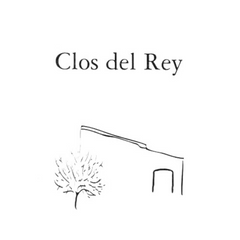 In the foothills of the Pyrénées Mountains, not far from the Mediterranean sea, Clos del Rey is situated in the high altitude hills over the tiny village of Maury. The estate has been owned and farmed by the Montagne family for generations. The vineyard itself is nestled among a protected area of garrigues (rosemary and thyme). The vines of up to 120 years old are allowed to grow natural and untrained, in the old-fashioned way, known as the goblet or bush style. However, it is what lies beneath the vineyard that lends much of the character and complexity found in their wines. Julien Montagne makes complex wines that truly represent his vineyards and his Catalan roots--you can almost smell the sun in the glass.
In the foothills of the Pyrénées Mountains, not far from the Mediterranean sea, Clos del Rey is situated in the high altitude hills over the tiny village of Maury. The estate has been owned and farmed by the Montagne family for generations. The vineyard itself is nestled among a protected area of garrigues (rosemary and thyme). The vines of up to 120 years old are allowed to grow natural and untrained, in the old-fashioned way, known as the goblet or bush style. However, it is what lies beneath the vineyard that lends much of the character and complexity found in their wines. Julien Montagne makes complex wines that truly represent his vineyards and his Catalan roots--you can almost smell the sun in the glass.
Press Reviews
Wine Align
91 points (2020) - John Szabo
Rather classic, scorched earth and wild resinous herb, burning rosemary-inflected grenache-based red from the deep south of France in the Roussillon, not yet at prime in my view. It will take some time for it to unwind, to shed the tannic cloak and oxygenate the smoky, wooly reductive nature. It's a beast of a wine at the moment, surely big, burly and concentrated, a genuine mouthful at the price. Worth buying a few bottles to stick in the cellar and try again in 2-3 years, or keep likely into the early '30s. Tasted May 2023
90 points (2020) - Megha Jandhyala
This is a rich, ripe blend from Maury Sec, an appellation in the Agly Valley in Roussillon that was authorized for the production of dry red wines in 2011. The nose is inviting and appealing, with notes of cherry compôte, black raspberries, garrigue, and a subtle mineral aroma that reminds me of wet cement. It is medium-bodied, with grainy, drying tannins and balanced acids. I really like the lush fruit on the mid-palate that recede gracefully, leaving a subtle bitterness and warmth in their wake. Tasted September 2022.
90 points (2020) - David Lawrason
The village of Maury is better known for its sweet 'vins doux naturel'. This dry red based on grenache, carignan and syrah shows the energy, or a certain internal combustion, I associate with the carignan grape. The nose is quite lifted with red fruit (raspberry, plum) some spice and minerality. It is medium-full bodied, sour-edged and firmly tannic with some heat. Quite peppery and meaty (charcuterie) on the finish. The length is excellent. Tasted Sept 2022
90 points (2020) - Sarah d'Amato
From a relatively new appellation in the southwestern region of Roussillon designated in 2011 to allow producers to craft dry reds in addition to the more famous Vin Doux of Maury. In the midst of all the sweetness of the region, Clos del Rey makes only dry wines. This plush incarnation features flavours of liquored black cherry, a chalky minerality and tender tannins. Ripe but with a lick of minerality that helps to provide balance along with a welcome degree of bitterness. Some bitterness helps curb the perception of alcohol too. An arresting yet youthfully broody wine. Tasted September 2022.
- Red Wine
- Sangiovese, Trebbiano
- Biodynamic, Natural, Organic, Vegan-Friendly
- Dry
- Light Bodied
- 750ml
- 13% alc./vol
About the Winery
Fattoria di Sammontana
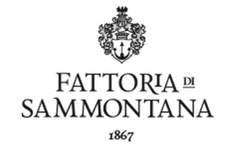
The vineyards of Fattoria di Sammontana are located along the hills that border the Arno River, 20km to the south west of Florence. Today, the family - now in its fourth generation - runs the farm according to organic and biodynamic practices, with the intent to fully preserve and sustain the traditions and winemaking history of the land. The property and its 12th century Romanesque church, were once the property of the Medici family.
- White Wine
- Marsanne, Roussanne, Viognier
- Organic, Sustainable, Vegan-Friendly
- Dry
- Full Bodied
- 750ml
- 13.20% alc./vol
About the Winery
Mas Carlot

Mas Carlot is situated in the south of the Rhône Valley, extending across 76 hectares of pebbly land southeast of Nîmes. Originally a 17th century farm, this beautiful estate was resurrected in the 1960's by the Blanc family—it is currently run Cyril Mares of the neighbouring and equally reputable property, Mas Bressades.
The appellation of Costières de Nîmes used to be considered part of eastern Languedoc but the climate, soil, topography and wine are far closer to those just over the river in the Southern Côtes du Rhône. It is now a region very much on the up and is widely recognized as a great source of excellent value wine.
Press Reviews
Wine Align
91 points (2022) - John Szabo, MS
Good volume and fruity depth here on this southern Rhône from Mas Carlot, richly flavoured, properly sapid, and saliva-inducing. I like the broad and rich palate, the long finish. White-fleshed orchard fruit leads and lingers. Top notch, and lovely. Tasted January 2024.
90 points (2022) - Megha Jandhyala
This golden southern Rhône blend is charmingly ripe and fleshy, even comforting, with notes of apples, tangerines, lychee, and toasted bread. The palate is mellifluous and pleasantly full, with a satin silk-like richness and juicy acids. The finish is gently warming, faintly bitter, and delicately textured. Tasted January 2024.
- Red Wine
- Cabernet Sauvignon, Grenache, Merlot, Tempranillo
- Organic, Sustainable, Vegan-Friendly
- Dry
- Full Bodied
- 750ml
- 14% alc./vol
About the Winery
Pago Aylés
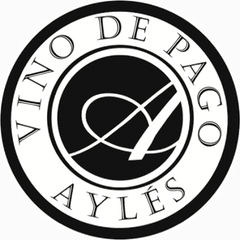
Pago Aylés was founded by Federico Ramón, who in 2003 began his dream of classifying this unique land as the first Vino de Pago in the Aragon region. In the Spanish wine quality pyramid, the Pago stands as a top tier or grand cru winery. Just before Federico died, his dream came true in 2010, as Aylés became the 10th Vino de Pago in Spain.
Today his three children continue to produce wines from this special land. The vineyard site has a long history of winemaking, dating back to the 12th century by Spanish monks. Influenced by the River Huerva and the Monte San Pablo mountain, the soil is a mixture of clay, limestone and chalk – ideal for making high-quality wine. Caves, ravines and old river beds can be found all over the estate, which is brimming with wildlife.
Press Reviews
WineAlign
90 points - John Szabo, MS
A deliciously ripe and fruity, sweet oak-inflected red from Aragón, a blend ("coupage") of merlot, garnacha, tempranillo and cabernet sauvignon. Dark plummy fruit, vanilla and dark chocolate flavours dominate with a dash of savoury herbs . I find it still a little tight and astringent, and would cellar another 2-3 years for additional softening; the sweet fruit will appeal widely no doubt. Bonus: certified organic. Tasted January 2026.
90 points - Sara d'Amato
Labelled as Vino de Pago, this wine comes from a single estate and is an organic blend of merlot, garnacha, tempranillo, and cabernet sauvignon grown on clay and calcareous soils at 500–700 m in Aragon, northeastern Spain. It shows some oak influence and a warming 14.5% alcohol, yet the palate is surprisingly balanced, filled with zesty, jammy red and black fruit. Licorice, white pepper, cedar spice, concentrated violet, and a hint of black tapenade add complexity. Very good length completes a wine that’s generous in flavour but lighter than expected on the finish. Tasted January 2026.
- White Wine
- Sauvignon Blanc
- Sustainable, Vegan-Friendly
- Dry
- Light Bodied
- 750ml
- 13.5% alc./vol
About the Winery
Domaine de Mauperthuis

A family estate created by Marie-Noëlle & Laurent Ternynck, Domaine de Mauperthuis is located in Prehy, near the town of Chablis. Their wines express the terroir of this amazing region and the vineyards are currently undergoing the transition to organic. Domaine de Mauperthuis covers around twenty hectares of vineyards around Chablis. The estate, in the Burgundy appellation, is planted in Chardonnay, Pinot Noir, Sauvignon and César, on land facing south, benefiting from exceptional sunshine.
Press Reviews
Wine Align
91 points - David Lawrason
Saint Bris is a rare sauvignon blanc appellation in northern Burgundy, pres de Chablis, which is not all that far as the crow flies from Sancerre. And I definitely get that tight, firm if less mineral character here. Expect generous aromas and flavours of juniper, grapefruit, pine needle and gooseberry/guava. It is medium weight, firm and dry, with some bitterness. The length is excellent. Always fun to present it this blind to sauvignon blanc fans. Tasted January 2024
Value Rating: 5 Stars
90 points - John Szabo, MS
This is an uncommonly ripe and fruity sauvignon blanc from Saint Bris in Burgundy, round and creamy, quite full bodied despite just 12.5% alcohol declared, with ripe orchard and pineapple fruit leading. Acids are creamy yet still fresh, and length and depth are very good. And while I'd love a little more complexity at the price, or at least would have expected, the current international yardstick of inexorably increasing prices secures this wine a spot in a favourable quality/cost zone. At peak now I'd say to capture the fruit. Tasted January 2024.
90 points - Megha Jandhyala
Saint Bris is an appellation in Bourgogne that, unusually, is centred around sauvignon blanc. This is a lovely example, showing poise and grace but also inviting and expressive flavours of peaches, apricots, grapefruit, and a hint of passion fruit. The palate is medium bodied and fleshy, with juicy acids. The length is very good, with a refreshing citrusy finish. I would drink this over the next year or two. Tasted January 2024.
- Red Wine
- Barbera, Dolcetto, Nebbiolo
- Biodynamic, Natural, Organic, Vegan-Friendly
- Dry
- Medium Bodied
- 750ml
- 13% alc./vol
About the Winery
Punset

While the vineyards that form Punset have been farmed by the Marcarino family for generations, it is truly thanks to Marina and her incredible energy that the estate is how it is nowadays. In the 1980s, she decided to pursue organic farming – a demanding choice that was rewarded by becoming the first estate to receive the organic certification in Italy. Her passion for the soil and the environment led her to embrace biodynamics and the agronomic philosophy of Manasobu Fukuoka. From one of the healthiest vineyards in Italy, Marina crafts wines that brim with life, energy, and pure terroir.
Known for the very first certified organic Barbaresco of Italy, Marina continues to show the world that you can preserve tradition and think of the future simultaneously.
Press Reviews
Wine Align
90 points (2018) - Michael Godel
Mainly dolcetto (70 per cent) with barbera and nebbiolo. Not much of the latter but necessary to widen the expression of the Langhe. Here it’s an explanation point, not a question, as in a confirmation of the exclamatory Piedmontese expression. Bright red amalgamated fruit with proper acidity and the ability to work alongside anyone and all. Drink 2019-2022. Tasted November 2019.
- Red Wine
- Barbera
- Sustainable, Vegan-Friendly
- Dry
- Medium Bodied
- 750ml
- 14% alc./vol
About the Winery
Cascina Castlèt
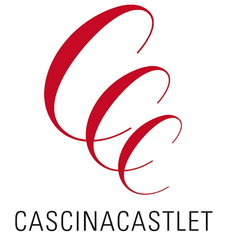 Cascina Castlèt has belonged to the Borio family for generations; Mariuccia, the current owner, inherited it from her father in 1970. Mariuccia focuses on her terroir and the local varieties. The vineyards of the estate are spread over 31 hectares, and are all located in Costigliole d'Asti.
Cascina Castlèt has belonged to the Borio family for generations; Mariuccia, the current owner, inherited it from her father in 1970. Mariuccia focuses on her terroir and the local varieties. The vineyards of the estate are spread over 31 hectares, and are all located in Costigliole d'Asti.
Press Reviews
James Suckling
91 points
Very nice blueberry and blackberry character with some spicy orange. Medium body. Fruity and tart. Drink now.
- White Wine
- Albarín
- Sustainable, Vegan-Friendly
- Dry
- Medium Bodied
- 750ml
- 13% alc./vol
About the Winery
Bodegas y Viñedos Pardevalles
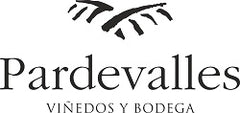 Pardevalles is recognized for being one of the driving forces behind the D.O Tierra de León, betting on the development of the indigenous grape varieties Prieto Picudo and Albarín Blanco. In 1949 Rafael Alonso founded Pardevalles continuing with the family tradition of growing grapes and making wine. The winemaking tradition in León goes back more than 400 years, famous for its centuries-old caves where wine was originally made.
Pardevalles is recognized for being one of the driving forces behind the D.O Tierra de León, betting on the development of the indigenous grape varieties Prieto Picudo and Albarín Blanco. In 1949 Rafael Alonso founded Pardevalles continuing with the family tradition of growing grapes and making wine. The winemaking tradition in León goes back more than 400 years, famous for its centuries-old caves where wine was originally made.The vineyards of Pardevalles are located between 750 and 820 metres above sea level, in an area with a Continental climate. They grow in poor, rocky alluvial soils which helps maintain the freshness in the wines. The philosophy of the Estate is grounded in making wines which express the character and identity of their origin, with a deep respect for the earth and the indigenous varieties of grape, combining tradition, innovation, and hard work.
Press Reviews
Decanter
92 points - World Wine Awards
WineAlign
90 points (2022) - Sara d'Amato
The early 2000s saw a revival in the albarín grape variety planted largely in the higher elevations of Castilla y León in southwestern Spain and a majority of that is being produced by Pardevalles. This refreshing and zesty expression offers an abundance of flavour from starfruit, lime, and yellow apple, to elderflower and toasty lees. Sure to be a hit with fans of sauvignon blanc and vermentino. An effortlessly elegant sipper with notable length. Tasted February 2024.
- Sparkling Wine
- Chardonnay, Macabeo, Pinot Noir, Xarel-lo
- Organic, Vegan-Friendly
- Medium Bodied
- 750ml
- 12% alc./vol
About the Winery
Mas Codina

The Mas Codina estate is located in the heart of the Alt Penedès region, comprising of low-lying plains and hills between 250 and 300 metres high.
Until recently, the farm has always grown, and made a livelihood from, cereals, grapes, peaches and vegetables, as well as farm animals. Now, apart from century-old olive trees, all the land is devoted to vineyards.
Mas Codina has been in the same family for generations. They have adopted organic farming practices promoting natural processes and seeking a balanced ecosystem. All because of their love for land and tradition. There are currently 40 hectares of vineyards that are being organically farmed.
Press Reviews
Wine Align
91 points - David Lawrason
This is a quite fine, firm and elegant cava with nicely placed yellow fruit, mineral and some wet stone and light bready character. This has good character. Nicely firm and dry with a nutty, slightly bitter finish. The length is excellent. Tasted March 2022.
Value Rating: 5/5 Stars
91 points - John Szabo, MS
Attractive aromatics and balance on the palate are features here on this well-made and flavourful cava, in the brut nature style (no added sugar), though neither hard nor overly tart. I like the toasty, creamy citrus fruit - lees ageing flavours are in stark relief, mixing with a good degree and range of other flavours, from fruit to nuts and beyond. Very good length, too. An impressive example in the category, and better than the last bottling tasted in March of 2022. Tasted November 2025. Previous: Here's a ripe and creamy, but also crisp and bone dry Cava with fine flavour definition and concentration, and decent length. Ripe citrus, orange and lemon zest, and gentle sweet herbal notes lead on the palate. Ready to drink. Tasted March 2022.
90 points - Michael Godel
Singular Cava work from a 40 hectare estate in the Alt Penedès dating to 1681. Organic, estate bottled and vines 20-30 years of age. A blend of chardonnay, macabeo, pinot noir and xarel-lo, aged on its lees for a minimum of two years before release. Buttered golden toast brioche, baked apples and light caramel. Delicious. Drink 2025-2027. Last tasted November 2025.
- Red Wine
- Pinot Noir
- Sustainable, Vegan-Friendly
- Dry
- Light Bodied
- 750ml
- 12.60% alc./vol
About the Winery
The Farm

“The Farm” is a 10-acre vineyard in Niagara’s Twenty Mile Bench, planted to Pinot Noir. The Neudorf vineyard was originally planted with Pinot Noir in 2000 for Le Clos Jordanne and aptly named “La Petite Colline”, meaning “little hill”, a nod to the gentle slopes that permeate the plot.
The property is rooted in traditions of gathering family & friends, and where Peter and Dora Neudorf call home. The cellar door opens once a year for guests to taste new releases, and enjoy live music and local food.
- Red Wine
- Sangiovese
- Organic, Vegan-Friendly
- Dry
- Medium Bodied
- 750ml
- 14% alc./vol
About the Winery
Villa Calcinaia
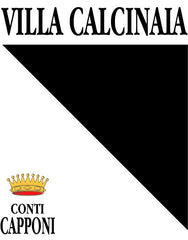
Villa Calcinaia is situated in the centre of Chianti Classico near the town of Greve-in-Chianti. This historic estate has been home to the Counts Capponi since 1524, and is maintained by Sebastiano Capponi and his brother Niccolo. In 1992, Count Sebastiano Capponi became the first in the history of the family to manage the winery personally, giving a new life to the vineyards and the cellar.
The family owns 200 hectares of land planted with olive trees, vines and pine trees. Organic farming is the standard at Villa Calcinaia where 75 acres of vineyard are planted with Sangiovese, Merlot, Canaiolo, Grechetto, Vernaccia, Trebbiano, and Malvasia. Through every vintage, the wines are crafted with food in mind. They are balanced, elegant, perfumed, and savoury yet refreshing with restrained vigour and intensity that ensures longevity.
Press Reviews
WineAlign
91 points - Sara d'Amato
A firm Chianti Classico, brightened by the purity of red fruit, simultaneously vibrant and structured. Gentle notes of tilled earth and new leather complement the cherry-driven palate, lifted by lively freshness. Fine-grained yet firm tannins frame the wine’s emerging youthful complexity. Stylish and promising, it will reward patience with further time in bottle.
Tasted January 2026.
90 points - John Szabo, MS
2023 is a fine vintage for Calcinaia's entry point "Cappone" bottling of Chianti Classico (owned by the current conte, or count, Cappone), ripe and generous but also clearly delineated and precise, with textbook savoury cherry flavours, red and black, and comfortably ripe tannins and acids. There's a pleasant ease and accessibility on the palate, an inviting profile that will be best enjoyed over the next 2-3 years. Textbook; certified organic as a bonus. Tasted January 2026.
- White Wine
- Chardonnay
- Sustainable, Vegan-Friendly
- Dry
- Medium Bodied
- 750ml
- 12.5% alc./vol
About the Winery
Domaine de Mauperthuis

A family estate created by Marie-Noëlle & Laurent Ternynck, Domaine de Mauperthuis is located in Prehy, near the town of Chablis. Their wines express the terroir of this amazing region and the vineyards are currently undergoing the transition to organic. Domaine de Mauperthuis covers around twenty hectares of vineyards around Chablis. The estate, in the Burgundy appellation, is planted in Chardonnay, Pinot Noir, Sauvignon and César, on land facing south, benefiting from exceptional sunshine.
Press Reviews
Wine Align
91 points (2020) - David Lawrason
This is a quite rich, slightly oxidative style of unoaked chardonnay with pale golden colour and a ripe nose of baked apple. Peach pie, toasty lees and vague nuttiness. It is medium weight, smooth and almost creamy with fine acidity and mineral underpinning. The length is excellent. Tasted June 2022
- Red Wine
- Grenache
- Organic, Sustainable, Vegan-Friendly
- Dry
- Full Bodied
- 750ml
- 14.5% alc./vol
About the Winery
Pago Aylés

Pago Aylés was founded by Federico Ramón, who in 2003 began his dream of classifying this unique land as the first Vino de Pago in the Aragon region. In the Spanish wine quality pyramid, the Pago stands as a top tier or grand cru winery. Just before Federico died, his dream came true in 2010, as Aylés became the 10th Vino de Pago in Spain.
Today his three children continue to produce wines from this special land. The vineyard site has a long history of winemaking, dating back to the 12th century by Spanish monks. Influenced by the River Huerva and the Monte San Pablo mountain, the soil is a mixture of clay, limestone and chalk – ideal for making high-quality wine. Caves, ravines and old river beds can be found all over the estate, which is brimming with wildlife.
Press Reviews
Wine Align
90 points - Michael Godel
Unexpected would indicate that strange things are forecast to occur but this garnacha from the large and historical Finca Aylés estate in Cariñena pretty much does the expected. Delivers dark varietal fruit with a mineral streak as salty as it is firm. Crunchy garnacha, full bodied and flavoured for the foreseen and well, expected. Garnacha of empowerment, helping consumers trust themselves and their palates and opinions, ultimately enabling them to confidently make wine purchasing decisions. Drink 2025-2027. Tasted March 2025.
90 points - David Lawrason
From a large and distinguished vineyard, this is a very smart and delicious garnacha. The ripe sweet almost candied nose black cherry, pomegranate juice is also quite floral. Oak is nicely in the background with a hint of mocha and spice. It is quite full bodied and rounded, but also has enough warmth and acidity to give it a sense of freshness and stability. The length is excellent. Might be a bit confected for some. Chill a bit. Last tasted Jan 2026
90 points - Megha Jandhyala, S.J.D., DipWSET.
This vegan garnacha from Aragón is almost lavishly fruity, with an engaging array of red fruit, some lightly candied. Undertones of woody spices and violet petals add to its appeal. The palate is supple, with juicy acidity, subtle warmth, and a gentle viscosity that lends it a sense of fullness. I really like the woody herbal note that lingers on the long finish. Bold, easy-to-like, and full of varietal character, this garnacha should ideally be enjoyed over the next year or so. Tasted January 2026.
90 points - Sara d'Amato
A full-throttle yet effortlessly pleasing and typical garnacha. White pepper, violets, strawberry, and black currant lead the charge. Clean, stylish, and modern, with a mouthwatering degree of juiciness. At 13.5% alcohol, it sits on the moderate end for the variety, making it notably more food-friendly than the norm. The spice profile is clearly grape-driven, with little to no influence from oak. Tasted January 2026.
- Sparkling Wine
- Chardonnay, Pinot Noir
- Sustainable, Vegan-Friendly
- Medium Bodied
- 750ml
- 12% alc./vol
About the Winery
Champagne Fresne Ducret
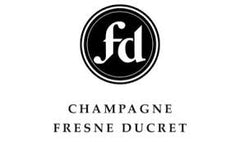
Fresne-Ducret is rich in family history and has been rooted in the premier cru village of Villedommange since the mid 1800s. Originally growing grapes for the big champagne houses, it wasn’t until the end of the second world war that the family decided to make their own wine. The tradition carries on today with Pierre Fresne and his wife Daniella (an Oakville ex-pat). Their philosophy is to produce wines that best exemplify the terroir of Villedommange, and they do this with sustainability in mind.
In 2014, Pierre Fresne embarked on a new adventure by creating a limited series of champagnes based on his desire for experimentation. Since then, he has produced one or two of these wines each year. Each are unique, according to his wishes and the profile of the vintage. This unique collection is called Arquémie, the term for alchemy in the Middle Ages. In 2018 Pierre began converting the vineyards to organic viticulture, and 2021 will be their first organic certified vintage.
Press Reviews
Wine Align
96 points - David Lawrason
This has a very intriguing, generous nose of macaroon (coconut), straw, dried apple, toast and almond/hazelnut. Also a lovely sense of sweet nut fudge. It is medium bodied with fulsome flavour, riveting acidity and all kinds of Champagne minerality. Great focus and length here. Wow! Tasted October 2020
93 points - John Szabo
Fresne Ducret's latest release of this premier cru "Chemin du Chemin champagne is a characteristically smoky and savoury, toasty and biscuity, mature champagne in the English style, balanced and savoury. I really like the developed, mature profile here, the great length. This is very good champagne ready to go. Tasted October 2020.
93 points - Michael Godel
When richness, yeasty and warm toasted brioche get together in Champagne the effect is comforting and potentially hypnotizing. From the Premier Cru village of Villedommange dating back to the mid 1800s, the pedigree is noted and the 48 months of lees aging a coup for creating both a creamy and a revitalizing Champagne. There is an oxidative aspect here and it's effectualness is one that imagines exotic spice cupboards, masala mixes and gingery tisanes. Quite the exotic bubble, lightly frothy, elegantly styled, complex and fine. Drink 2020-2026. Tasted October 2020.
Wine Enthusiast
94 points
This Champagne shows some fine maturity. A blend based on the 2014 vintage, it now has toastiness while keeping intense freshness. Acidity and touches of minerality come through the spiciness. Drink now.
- Red Wine
- Gamay
- Biodynamic, Sustainable, Vegan-Friendly
- Dry
- Light Bodied
- 750ml
- 13% alc./vol
About the Winery
Stéphane Aviron

Stéphane Aviron can be considered a pioneer in his approach to winemaking in Beaujolais, however he would just tell you that he’s simply returning to the traditional practices that have always made fantastic Gamay wines. Sustainable viticulture, extremely old vines and classic Burgundian techniques. He focuses on the Beaujolais village crus, all but forgotten gems of vineyards when the nouveau craze took over, which are the best sites for unique, expressive and terroir driven wines. All of the fruit is sourced from old vines (40+ years), so seeing Vieilles Vignes on the label is a rite of passage, not a privilege. Authenticity and a distinctly Beaujolais style of winemaking is what sets Stéphane apart from the rest.
Press Reviews
Wine Align
90 points (2020) - David Lawrason
This is a delicious, fairly juicy and charming young gamay. There is a hint of meatiness on the nose but all kinds of candied strawberry/cherry as well, and violet-like florals. It is light to medium bodied, open knit, slightly sour-edged with very generous fruit on the palate. The tannins are notably mild, the alcohol provides some power and the length is very good to excellent. Tasted June 2022
- White Wine
- Chardonnay
- Sustainable, Vegan-Friendly
- Dry
- Light Bodied
- 750ml
- 12.2% alc./vol
About the Winery
Pearce Family Wines

In the early 2000's Nicholas Pearce was exposed to the garagiste movement in Bordeaux and was particularly inspired by négociants like Jean Luc Thunevin (Saint Emilion), James Sichel (Margaux) and Nicolas Potel (Beaune) from Burgundy.
After returning home to Ontario and starting his own wine company, he has had a hand in making 10+ wines in two hemispheres, 3 countries and 5 different appellations since the 2013 vintage.
Press Reviews
Wine Align
91 points - Megha Jandhyala
This is a firm, flavourful, and elegant chardonnay, made with fruit that were organically, bio-dynamically, and sustainably grown. I like the balance between crunchy orchard fruit and juicy lemons, on the one hand, and finely-integrated notes of spice and toast on the other. It feels rounded and silky on the palate, lifted by taut acidity. The finish is long-lasting, leaving subtle salinity in its wake. Tasted April 2023 by Critic Understudy Megha Jandhyala.
90 points - David Lawrason
This is a very fine, quite elegant chardonnay that over-delivers for $25. There is a sense of sophistication here.The nose is generous and clean with very well integrated peach/pear, subtle toast, spice and lees. It is mid-weight, polished and very well balanced, with some minerality on the finish. Tasted April 2023.
- Red Wine
- Malbec
- Vegan-Friendly
- Dry
- Medium Bodied
- 750ml
- 14.5% alc./vol
About the Winery
Bodega Marco Zunino
 The dream of 4 French partners in Argentina's Mendoza region can be found 200 kilometers from the district capital, in the South of the region, in the town of San Rafael. It's an oasis surrounded by large canyons and crossed by two rivers, Diamante and Atuel, vital for agriculture and tourism in the region.
The dream of 4 French partners in Argentina's Mendoza region can be found 200 kilometers from the district capital, in the South of the region, in the town of San Rafael. It's an oasis surrounded by large canyons and crossed by two rivers, Diamante and Atuel, vital for agriculture and tourism in the region.The arid climate, rugged landscape coupled with the plane trees located along the country roads and weeping willows bordering its rivers that makes the area reminiscent of the midi region in the South of France.
The thirty-hectare vineyard boasts an exceptional site and an idyllic regional climate for wine producing. The low rainfall, vineyard altitude (670m) and high temperature variations are key to the diversity and quality of San Rafael’s terroir and offers the ideal setting for a truly exceptional quality of grape.
Press Reviews
WineAlign
90 points - David Lawrason
This is a quite bright and juicy young malbec. The nose has some energy with lifted mulberry/raspberry, fresh herbs, red rose and some shrubby character. It is medium-full bodied, with good acidity, some heat and slightly astringent tannin. Lacks elegance perhaps, but has some life. Very good length. Tasted January 2026. Tasted January 2026
90 points - Megha Jandhyala, S.J.D., DipWSET.
This is quite a classic representation of malbec, with notes of nutmeg, cloves, and dried leaves serving as top notes, followed by flavours of damson plums and blueberries. The palate is medium to full bodied and approachable, with fine-grained tannins and succulent acidity. The long finish displays accents of vanilla and dried henna, then diffused warmth. Balanced, with very good concentration and length, this is wine that should appeal to most. Tasted January 2026.
- Red Wine
- Nebbiolo
- Organic, Vegan-Friendly
- Dry
- 750ml
- 14% alc./vol
About the Winery
Réva
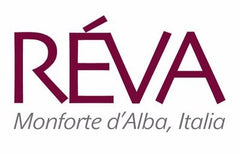
Réva is a winery based in Monforte D’Alba, within the Langhe area, in Piedmont, west northern Italy. Its aim is to bring the most brilliant young people of the area together, entrusting them with the task of expressing themselves in the most creative and professional way possible. This is Réva’s Wave, a dynamic team that represents the new Langhe generation, in constant communication with tradition, without the fear of reinterpreting it.
Today the vineyard sites which spread over 4 villages, Monforte D’Alba, Serralunga D’Alba, Novello and Barolo are all managed directly with the entire agronomic work done manually. Strong sustainable vineyards conduction, certified organic, they believe that their biggest challenge is not inventing anything but just define and express the beauty of the land where they live.
Behind every glass of wine there is an expression, expression of terroir, varietal, the varietal is for them everything, indigenous, they speak of the land and, last but not least, passion for what they do. Simply as that.
Press Reviews
Wine Align
92 points (2021) - David Lawrason
Here's a lovely, pale, lighter nebbiolo that pinot noir fans will love. Great vitality and purity here. It shows nicely lifted, classic strawberry/redcurrant fruit, delicate florality (carnation?), fine tobacco-like spice and subtle underbrush. It is medium bodied, firm, taut and juicy with balanced alcohol and slightly gritty tannin. A touch mineral and earthy on the finish. The length is excellent. Tasted August 2023
91 points (2021) - Michael Godel
Consistently honest and transparent nebbiolo from Réva, ripe if of a fruit type that will not blow anyone’s mind as Barolo, though in Langhe form that is neither the hope, plan or expectation. This from 2021 fulfills dreams of beauty and ease for drinking now and up to four years further in this excited yet controlled stylistic state. Lovely wine, understated and also of a salty and sufficiently grippy underlay. Drink 2023-2026. Tasted August 2023.
90 points (2021) - John Szabo, MS
Clean and fresh, ripe and perfumed, Réva's 2021 nebbiolo d'Alba is even lightly effervescent on the palate, with residual carbon dioxide presumably deliberately left in to lift and refresh the palate (i.e. it's not refermenting). Delicious it is in any case, with plentiful strawberry fruit in the varietal idiom and no evident interference from wood. tannins are fine and acids are juicy, making this a lively and joyful wine to sip. Drink over the next 2-4 years to capture the vibrancy. Tasted August 2023.
- White Wine
- Clairette, Grenache Blanc, Marsanne, Picpoul
- Organic, Vegan-Friendly
- Dry
- Full Bodied
- 750ml
- 13.50% alc./vol
About the Winery
Château de Montfaucon

Just across the Rhone river from the beautiful vineyards of Chateauneuf-du-Pape, the Lirac appellation extends itself on the low hills alongside the river. The history of Château de Montfaucon dates back to the 11th century when the castle's first tower was built. The castle's role in history was strategic; the Rhône River was the border between the French Kingdom and the Holy Roman German Empire. Montfaucon was one of many castles and fortresses along the Rhône River constructed to guard the border.
Rodolphe de Pins took over the family estate of Montfaucon in 1995 and subsequently rebuilt the winery and began practicing sustainable agriculture. He honed his winemaking skills in Barossa at Henschke and Vieux Telegraphe in Châteauneuf du Pape before returning to Lirac, so needless to say, his familiarity with the local varieties is well established.
Press Reviews
Wine Align
92 Points - David Lawrason
This is a blend of usual suspects among the white grapes of southern France with marsanne leading at 40% followed by clairette at 35%. It was fermented and aged in French oak barrels which accounts for the quite deep yellow gold colour. The nose is rather reserved but exotic and complex with waxy notes, apricot, orange peel, honey and wood spice. It is full bodied, almost thick, creamy and warming with 13.5% abv. Quite a mouthful, with some sense of wood tannin on the finish. Needs very rich savoury dishes. Excellent length. Tasted Nov 2025
91 points - Michael Godel
Comtesse Madeleine is a blend of marsanne and clairette with lesser amounts of grenache blanc and picpoul, likely named for Marie-Madeleine Pioche de la Vergne, comtesse de La Fayette, a 17th century French writer known for La Princesse de Clèves. Profound is once again the first word to slip from the tongue because neither Lirac nor Côtes du Rhône are normally poised to offer such substantial qualities. Aside from the flinty opening salvo there are wisps and whispers of aromatic complexities in between, all ahead of a maturity and knowing experience showing prominently at the finish. Once again gastronomical scents, of porchetta, herbs and other aromatics coming from this meatiest of white wines. Begins slower and takes longer to reveal its charms than the previous vintage tasted but once momentum makes gains then the stirring is activated. The finish is long and true. Drink 2025-2029. Tasted November 2025.
90 points - Sara d'Amato
This blend of marsanne, clairette, grenache blanc and picpoul, aged 8 months in oak barrels, is named in homage to Madeleine de Montfaucon, grandmother of current owner Rodolphe de Pins, who stewarded the estate for over 60 years. The wine offers a gently aromatic profile: floral notes, fresh linen, a touch of musk, and yellow fruit recalling mirabelle plum. Lanonlin and a lively mineral edge keep it fresh. The palate is fleshy, with oak spice playing a minimal supporting role behind the fruit. Highly drinkable, it gains richness as it unfurls. Features a lingering finish of memorable length. Tasted November 2025.
- White Wine
- Pinot Grigio
- Sustainable, Vegan-Friendly
- Dry
- Light Bodied
- 750ml
- 13% alc./vol
About the Winery
Vitas
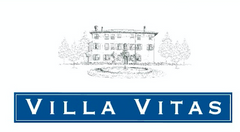
The Vitas Winery has been in the family since 1935, for four generations. It is located in the wine-producing area of DOC Friuli Aquileia, on a clayey-marly and sandy-calcareous soil (the so-called Magredi), one of the ingredients which, together with the influence of the sea and a friendly sun, create a perfect microclimate for vine-growing. A lot of importance is placed on conserving the environment and they use methods that protect their natural resources and the surrounding environment
Press Reviews
WineAlign
90 points (2022) - Michael Godel
Far from ubiquitous pinot grigio and yet knowable as a varietal wine that could not be anything else. Not a skin-macerated style but well-pressed to eek out high volume fruit intensity and so the levels of extract, pulpy muskiness and tannin are all on order. Almost chewy in this combined regard and flavourful to the pinot grigio maximum. A style for sure and one executed with top acumen. Drink 2024-2026. Tasted June 2024.
90 points (2022) - David Lawrason
This is a fairly ripe, almost tropical warm vintage pinot grigio with yellow plum, melon and subtle lemon/mandarin citrus blossom notes. It is medium weight, still nicely fresh with a hint of CO2, but a touch warm and off-dry, so do keep it well chilled. Nicely bright and generous, with a hint of minerality on the finish. The length is very good to excellent. Tasted June 2024
- Red Wine
- Corvina, Rondinella
- Sustainable, Vegan-Friendly
- Dry
- Full Bodied
- 750ml
- 13.50% alc./vol
About the Winery
Ca' del Monte

Ca del Monte is situated on the hillsides overlooking the village of Negrar, in the heart of Valpolicella. It has belonged to the same family for generations, and is now run by brothers Umberto and Giuseppe Zaconte. There’s nothing fancy about this place. The house and winery are modest - and are attached to a 17th century monastery.
The estate is approximately 50 acres, and its 15-65 year old vines lie on gentle slopes at 800-900 meters. They grow on four soils including clay, limestone, red volcanic soil with red stones, and “Toar,” a green volcanic soil. The vineyards of Ca Del Monte are planted with 20-40 year old vines of Corvina, Rodinella and Molinara grapes that are planted in poor soils that stress the vines and nurture the fruit. All of the farming is done traditionally and non-certified organic.
Press Reviews
Wine Align
90 points- John Szabo, MS
Maturing, classically-styled ripasso here from the reliable house of del Monte, supple, smooth, well-balanced, juicy and silky. Flavours span the expected mature dark cherry spectrum, buffeted by gently resinous, old wood influence, with a mix of toasted almonds and dried herbs in an inviting ensemble. Length and depth more than deliver in the category. Fully ready to drink. Tasted January 2023.
90 points - Michael Godel
Über traditional so far as Ripasso is concerned and exaggeratedly so due to an extra couple of years got behind this corvina and friends by Ca’ del Monte. Persistent though, a juicy, juicy version with plenty of freshness and generosity with thanks to bright acids keeping the energy alive. Nice Ripasso indeed to serve a purpose in our lives, mainly to match a good braise in these cold winter months. Drink 2023-2025. Tasted January 2023.
90 points - Sara d'Amato
More refreshing than heavy, this well-balanced Ripasso style Valpolicella is effortlessly drinkable. The tannins have mellowed but still give a healthy bit of tack to the palate. Features an appealing degree of verve, authenticity and notable length. Gracefully matured and ready to drink. Best now to 2025. Tasted January 2023.





























